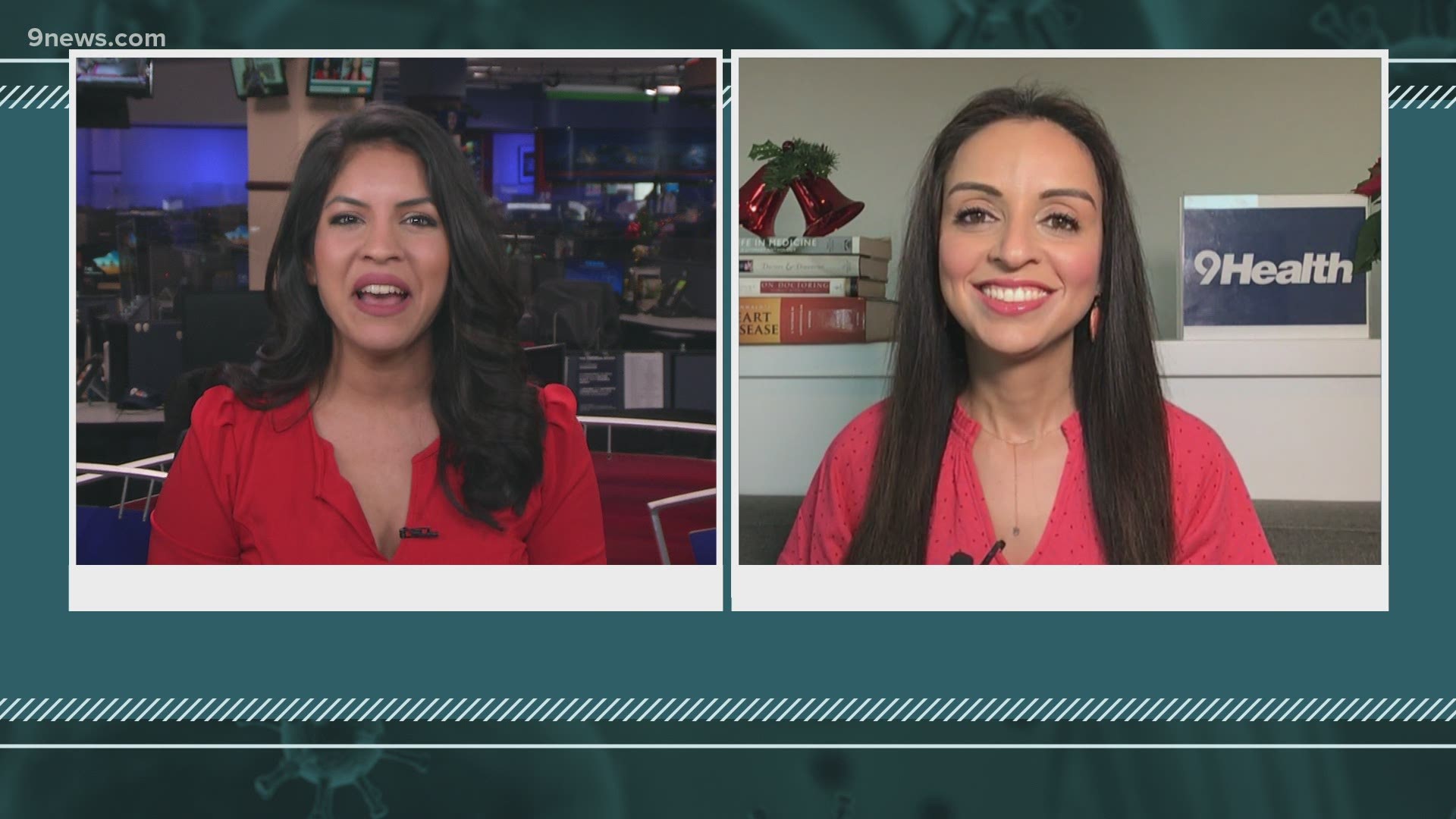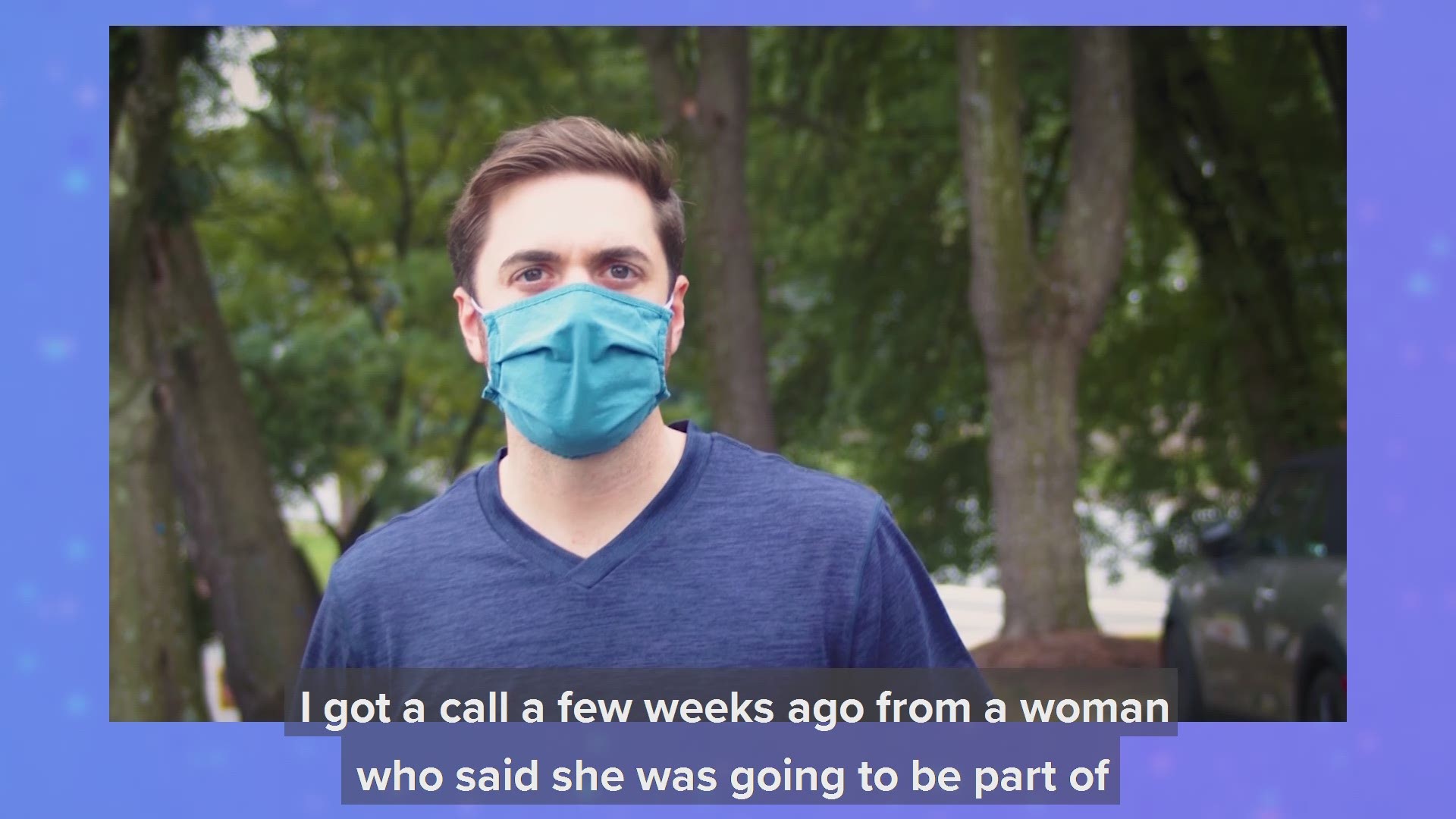WASHINGTON — President Donald Trump celebrated the expected approval of the first U.S. vaccine for the coronavirus as the White House worked on Tuesday to instill confidence in the massive distribution effort that will largely be executed by President-elect Joe Biden
Trump declared that the expected approvals are coming before most people thought possible. “They say it’s somewhat of a miracle and I think that’s true," Trump said.
He led the event celebrating “Operation Warp Speed,” his administration's effort to produce and distribute safe and effective vaccines for COVID-19. The first vaccine, from drugmaker Pfizer, is expected to receive endorsement by a panel of Food and Drug Administration advisers as soon as this week, with delivery of 100 million doses — enough for 50 million Americans — expected in coming months.
“Every American who wants the vaccine will be able to get the vaccine and we think by spring we’re going to be in a position nobody would have believed possible just a few months ago,” Trump said.
Trump and his aides hope the event will tamp down skepticism among some Americans about the vaccine and help build the outgoing Republican president’s legacy.
The “Operation Warp Speed” summit featured Trump, Vice President Mike Pence and a host of government experts, state leaders and business executives, as the White House looks to explain that the vaccine is safe and lay out the administration’s plans to bring it to the American people. But officials from Biden’s transition team, which will oversee the bulk of the largest vaccination program in the nation’s history once he takes office Jan. 20, were not invited.
Trump's administration was facing new scrutiny Tuesday after failing to lock in a chance to buy millions of additional doses of Pfizer's vaccine, which has shown to be highly effective against COVID-19. That decision could delay the delivery of a second batch of doses until Pfizer fulfills other international contracts.
Under its contract with Pfizer, the Trump administration committed to buy an initial 100 million doses, with an option to purchase as much as five times more.
But this summer, the White House opted not to lock in an additional 100 million doses for delivery in the second quarter of 2021, according to people who spoke on condition of anonymity because they were not authorized to discuss it publicly.
Trump used the event to sign an executive order in which the secretary of Health and Human Services is directed to ensure that Americans have priority access to the vaccine.
Dr. Moncef Slaoui, who is leading the government’s vaccine effort, noted the Trump administration had been looking at a number of different vaccines during the summer. He told ABC's “Good Morning America” on Tuesday that “no one reasonably would buy more from any one of those vaccines because we didn’t know which one would work and which one would be better than the other.”
Concerns about the availability of the vaccines come as Trump is to sign an executive order Tuesday to prioritize Americans for coronavirus vaccines procured by the federal government. A senior administration official said the order would restrict the government from delivering doses to other nations until there is excess supply to meet domestic demand, but it was not immediately clear what the practical impact would be.
The Trump administration insists that between the Pfizer vaccine, another vaccine from drugmaker Moderna and others in the pipeline, the U.S. will be able to accommodate any American who wants to be vaccinated by the end of the second quarter of 2021.
The decision not to secure additional Pfizer purchases last summer was first reported by The New York Times. Health and Human Services Secretary Alex Azar told NBC the administration is "continuing to work across manufacturers to expand the availability of releasable, of FDA-approved vaccine as quickly as possible. … We do still have that option for an additional 500 million doses.”
While Trump was to take credit for the record pace of vaccine development, much of the groundwork was laid over the last decade, amid new research into messenger RNA, or mRNA, vaccines — of the sort developed by both Pfizer and Moderna.
“The speed is a reflection of years of work that went before,” Dr. Anthony Fauci, the top U.S. infectious disease expert, told The Associated Press this month. “That’s what the public has to understand.”
The Food and Drug Administration's panel of outside vaccine experts is to meet Thursday to conduct a final review of the Pfizer drug, and it will meet later this month on the Moderna vaccine. The FDA is not required to follow the panel's advice, though it usually does.
Agency decisions on the two drugs are expected within days of each meeting. Both have been determined to be 95% effective against the virus that causes COVID-19. Plans call for distributing and then administering about 40 million doses of the two companies’ vaccines by the end of the year — with the first doses shipping within hours of FDA clearance.
Biden, who was rolling out his senior health team on Tuesday, said last week that in meetings with Trump administration officials his aides have discovered that “there’s no detailed plan that we’ve seen” for how to get the vaccines out of containers, into syringes and then into people’s arms.
Trump administration officials insist that such plans have been developed, with the bulk of the work falling to states and local governments to ensure their most vulnerable populations are vaccinated first. In all, about 50,000 vaccination sites are enrolled in the government's distribution system, the officials said.
Each of the forthcoming vaccines has unique logistical challenges related to distribution and administration. The Pfizer vaccine must be transported at super-cooled temperatures, and comes in batches of 975 doses. Each vial contains five doses, requiring careful planning. The administration has prepared detailed videos for providers on how to safely prepare and administer doses, to be posted after the FDA issues its emergency use authorization.
One such plan is to be announced Tuesday: Pharmacy chains CVS and Walgreens have stood up a “mobile vaccination service" ready to vaccinate people in every nursing home and long-term care facility in the country. The roughly 3 million residents of those facilities are among the most vulnerable for COVID-19 and have been placed at the front of the line to access the vaccine, along with more than 20 million healthcare workers. So far 80-85% of the facilities have signed on to the service, the officials said.
___
AP writers Jonathan Lemire in Wilmington, Delaware, Lauran Neergaard in Washington and Linda Johnson in Trenton, New Jersey, contributed to this report.


